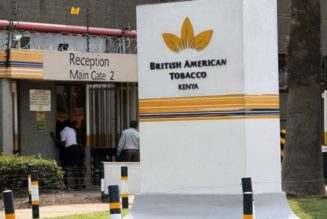Market News
Textiles in tough times as EAC proposes top taxes
Tuesday April 11 2023
Workers make garments at Rivatex East Africa Limited in Eldoret town, Uasin Gishu on September 09, 2021. NMG PHOTO | JARED NYATAYA
Kenya’s textile industry will be hit hard following a proposal by the East African Sectoral Council on trade to move tax paid on imported apparel to the highest band in order to spur local production.
The council, which is an apex organ for investment and trade in the region, wants the duty levied on textiles under the Common External Tariff (CET) to be moved to 35 percent –the highest tax band under the EAC.
The council says the move is aimed at promoting production of cotton within the region and cutting overreliance on imports, which has hindered development of the sector in the regional.
Kenya produces less than 12 million square metres of woven fabric per year, against a market demand of approximately 171 million square metres, making the country a net importer of both cotton and textile.
“The Sectoral Council made proposals on textile and textile articles to be moved to maximum band to stimulate local production,” said the council during its 38th extra-ordinary meeting held in Kilimanjaro, Tanzania.
Currently, finished goods imported into the regional bloc attract a duty of 25 percent, intermediate goods (10 percent) and raw materials (0 percent) under the EAC’s existing three-band tariff structure, which came into effect on January 1, 2005.
The ministers also want expansion of the harmonised cotton, textiles and apparels articles under duty remission in order to enhance trade among the member States.
As such, the council wants the member states to establish a digital platform to support exchange information on the harvesting of cotton and trade of cotton lint in order to increase the intra- EAC trade on the products.
As part of promotion of Buy East Africa Build East Africa (BEABEA), the meeting encouraged the partner states to adopt the use of traditional / folklore wear as government dresses for official events.
Kenya has already encouraged civil servants to dress African attires on Fridays as a way of boosting the textile industry. However, the directive is yet to pick.
In 2020, former President Uhuru Kenyatta re-commissioned Rivatex company to promote the production of locally made products using cotton that has been produced by the local farmers.
Cotton output has been falling in the country since the 1980s with Kenya relying on imports to bridge the deficit.
The extraordinary regional meeting also called for modalities of developing a leather industrial park with common effluent treatment in the region to boost the leather industry that is still lagging behind.
The council said EAC member States should take steps to expand manufacturing whose contribution to GDP has weakened over the years and trails the set targets.









